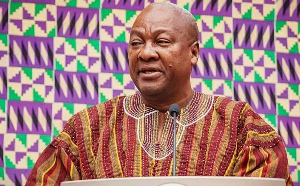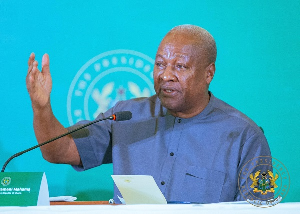Is our asset declaration regime a joke? Of course it is. Case close. It is a very big joke.
I remember writing an article somewhere in 2016 under the title “declaring to conceal”.
In there, I took a look at Ghana’s asset declaration regime.
In the wake of the current discussion around the asset declaration regime again, I have reproduced my thought on the issue.
Asset declaration was always going to be a problem in our context. Disclose your asset and spiritual forces will come whisk them away.
Declare your asset and you would have to deal with the cultural and social pressures of it.
The challenge of individuals declaring their net worth and assets may be part of the legacy of the military dictatorships that we’ve had in the past.
In the immediate aftermath of the overthrow of Kwame Nkrumah and beyond, a score of commissions of enquiry were set up to investigate persons who were alleged to have acquired assets through corrupt means.
Rarely do you find people come out into the public space to discuss and disclose the properties and assets they have in their name.
The slightest hint as to who owns what, where and to what tune has always been a question of conjecture and sweet gossip.
We know very little about the politicians and public officials who are placed in charge of us.
But public declaration of assets must be one of the prices persons seeking to be public office holders must bear in mind.
Our current asset declaration regime is in itself inherently contradictory.
It provides for the declaration of assets that no one gets to see in the first place - except for the Auditor-General.
If it were functioning properly, it would have been an effective tool in the fight against corruption.
But of course, it was doomed to fail from the very start.
The asset declaration regime is governed by the constitution and some other legislation with the key one being the Public Office Holders (Declaration of Assets and Disqualification) Act, 1998 (Act 550).
The Act requires that a person who holds public office should submit to the Auditor-General a written declaration of the properties or asset owned by the public officer in question- whether directly or indirectly.
It doesn’t stop there. The law requires a declaration of the liabilities owned also directly or indirectly by the public officer.
The declaration of the asset is required to take place after the public officer takes office, at the end of every four years; and at the end of the term of the public officer.
The respective declarations must be done within a six-month period.
There is no limit to the categories of properties, which must be declared under the act.
They include lands, houses and buildings, farms, concessions, trust or family property in respect of which the officer has beneficial interest, vehicles, plants and machinery, fishing boats, trawlers, generating plants, business interests, securities and bank balances, bonds and treasury bills and so on.
As records have it, while the current asset declaration legislation, Act 550, was under consideration in Parliament, the House rejected proposals that would have allowed public access to disclosures.
Most Parliamentarians were of the view that the public access to the assets disclosed would amount to a breach of their right to privacy.
A member of parliament is on record to have said: “somebody can look at it [asset declaration] and go and organise thieves to steal the properties.”
Theft year after theft year, we aren’t too sure whether the individuals who are required to serve our interest are actually doing so.
If ever there was a time to bring the question of asset declaration to be fore, it is now.
Incoming office holders are required to declare their assets. Persons leaving office are required to declare their assets.
Persons continuing with their office are required to declare their assets.
These assets should be made open and accessible to the public. There is no point in requiring someone to declare something only for it to be concealed.
There is really no point in that.
Let’s face it, the fight against public sector corruption is not going anywhere unless we fix the question of asset declaration.
And to the members of parliament and government officials who are striving hard to stand in the way of a more open and transparent asset declaration regime, my question to you is simple – what do you have to fear?
As we speak, public service is in shambles.
People are losing faith in the system. People are tired of the rhetoric.
We need more concrete and solid action. We need not lose sight of the primary purpose for going into government.
It is to make our lives better. And the good news is that it is not compulsory!
Opinions of Friday, 12 October 2018
Columnist: Samuel Alesu-Dordzi















